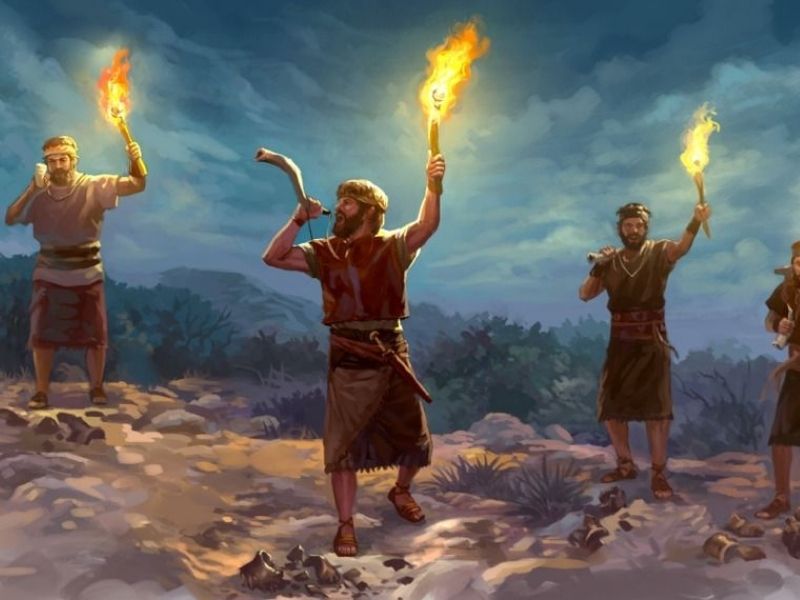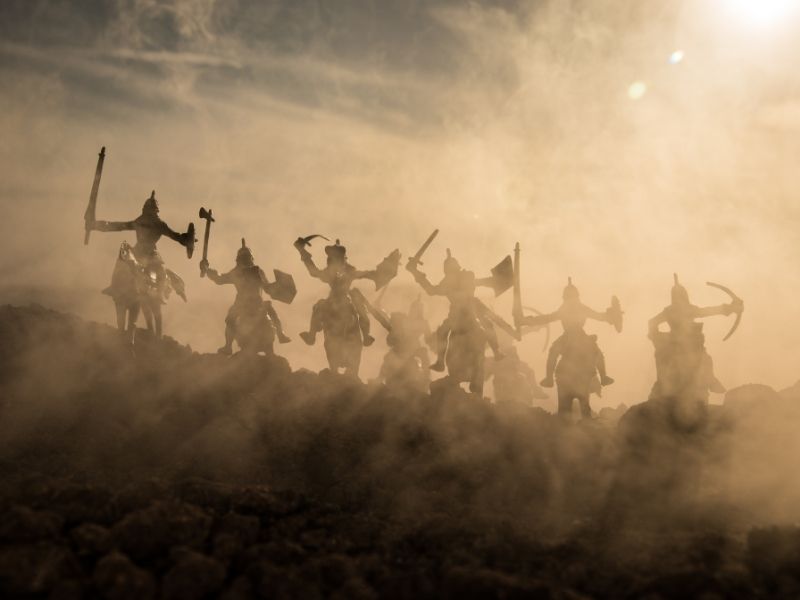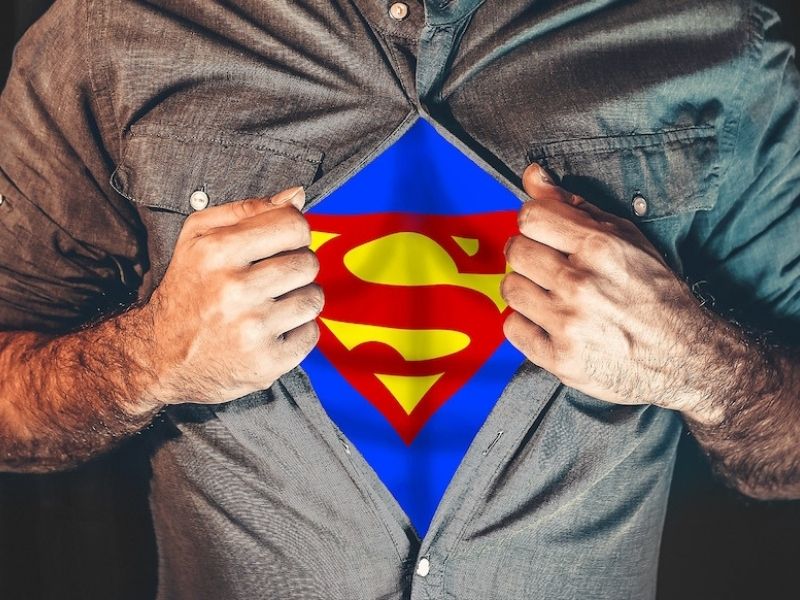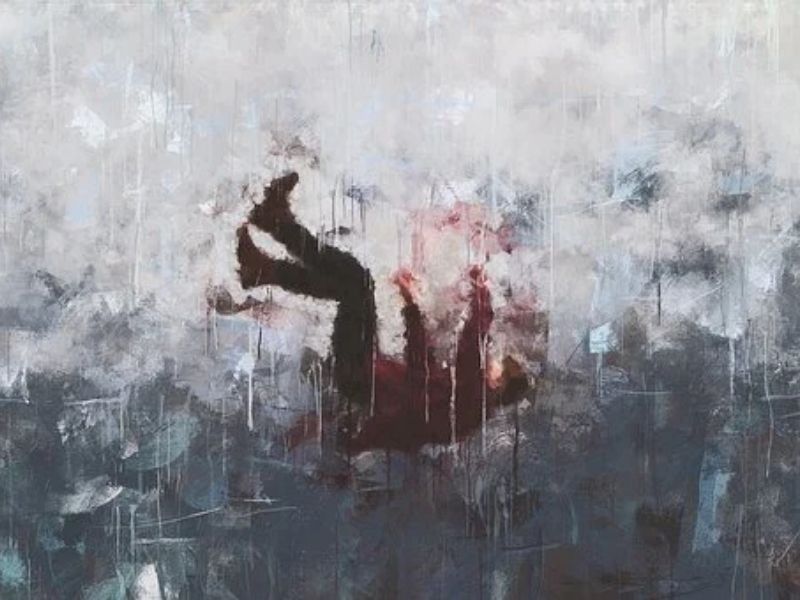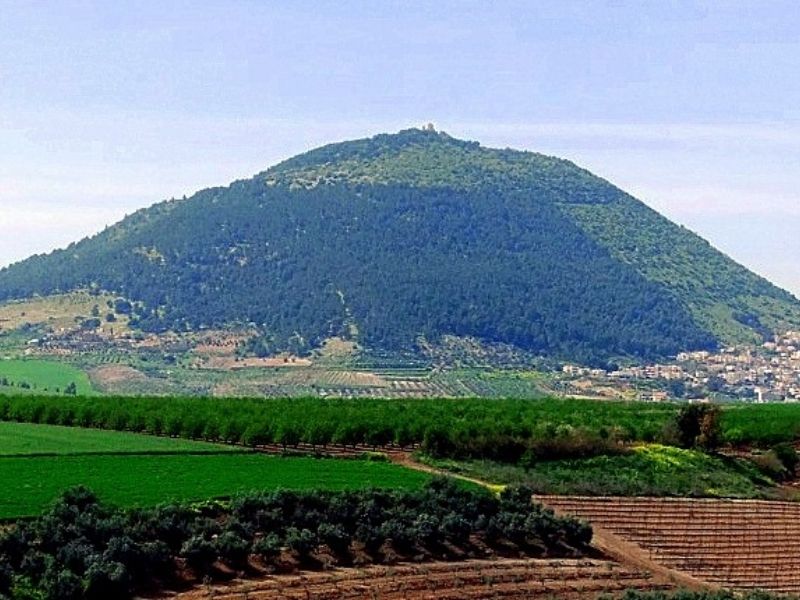The opening verses of chapter 10 contain the very brief summary of two minor Judges called Tola and Jair. It provides us with a welcome and much needed interlude. It is a short account, light in tone compared with what has gone before in Judges 9, and acts as a transition between the account of Abimelech and the shocking story of Jephthah that will follow. It gives us some breathing space in a book that is particularly intense and demanding. But as always since this is part of divine scripture and ‘all scripture is useful’ there are lessons for the 21st century disciple of Jesus Christ to learn.
Up to chapter 9 there has been a familiar sequence of events - the Israelites did evil in the eyes of the LORD, they suffer oppression at the hands of their enemies, they finally cry out to the LORD for deliverance, He raises up a judge to save them, they experience victory over their enemies and then they enjoy a period of peace before the whole sorry cycle starts all over again. But not this time.
Chapter 9 marks a complete departure from this sequence. It describes a horrendous episode in Israel’s history which makes ‘Game of Thrones’ look like ‘The Waltons’ in comparison. Here we see Abimelech, the ambitious and ruthless son of Gideon ignite a fire that in the end consumes not only him but those who foolishly throw in their lot with him. It is ultimately a story about the reality of God’s judgement on those who reject him and do that which seems right in their own eyes.
As a result of Gideon’s faith and obedience the LORD gave the victory He had promised in chapter 6. By the end of chapter 7 the Midianites are defeated and the survivors on the run. Gideon and his 300 men are in hot pursuit. But while in chapter 7 we see God honouring leadership from Gideon unfortunately in chapter 8 we see the sad result of what happens when a leader loses perspective.
The Scottish Presbyterian pastor Andrew Bonar once said, “Let us be as watchful after the victory as before the battle.” These are wise words that Gideon could have done with hearing. Instead he shows us how it possible to win the battle but lose the victory.
The Gideon we encounter in Judges 6 trying to thresh wheat in a wine press is a very unlikely hero and yet his is what the writer of Hebrews in the New Testament has to say, “I do not have time to tell [fully] about Gideon … who through faith conquered kingdoms … whose weakness was turned to strength; and who became powerful in battle and routed foreign armies.” (Hebrews 11:32-34). How does this transformation come about? How does this questioning and frightened Israelite come to be remembered as a hero of faith? Judges 7 gives us the answer.
We are all prone to fear and doubt. Life often throws at us circumstances that bring those fears and doubts to the surface. When that happens we often find ourselves asking questions of God - Why has this to happened? Why Me?
Judges 6 introduces us to Gideon - the greatest of the Judges and whose story is the longest in the book. He is one of the heroes of faith mentioned in Hebrews 11. But he didn’t start out that way. When we first meet him in Judges 6 he is a man filled with fear and questions.
Chapter 5 of Judges is a victory song. It celebrates the deliverance of Israel from the Canaanite oppression narrated in the previous chapter. Deborah’s song emphasises that the victory is achieved solely by the power of the Lord, but the people’s participation in the battle still matters a lot.
Once upon a time there was a wicked king, who had a fierce general who commanded 900 iron chariots. Life was hard for the poor, oppressed people who had come to live in that land. But three people were going to rescue them. The first was a judge who sat under a tree, the second was a soldier who won a battle after a thunderstorm and the third was a woman with a mallet and a tent peg.
But which of the three of them was the real hero of the story?
There were forty years of peace during the lifetime of Othniel, the first Judge of Israel. But after his death the same sorry cycle begins again: “The Israelites did evil in the eyes of the Lord.” However, the surprise this time is the strange choice of saviour that God uses to deliver His people. As we will see the story of Ehud is a tale of the unexpected.
Dr. Charlie Hadjiev continues in our series in Judges and leads us through Judges 2:16-3:11. Here we meet our first judge - Othniel.
Last week we began our studies in the book of Judges and saw how, despite a good beginning, the second phase of the conquest of Canaan stalled and ended in stalemate. We considered the reasons for this from the clues that the author gives us in chapter 1.
Now in chapter 2 we get the definitive answer – God’s answer as to what has gone wrong. Then we get an account of the sad fall of Israel into disobedience and apostasy and the painful consequences that flowed from this. In this we find a clear warning for the church of Jesus Christ today.
Today we begin a new teaching series in the book of Judges. Judges takes us to a lawless time filled with murder and massacre, immorality and unfaithfulness. It is the Bible book that makes ‘Game of Thrones’ look tame by comparison. It is the story of some of the Bible’s most familiar “heroes”: Samson, Gideon, Deborah. It tells of how Israel’s “judges” saved the people over and over again from the cruel oppression of the nations around them. Yet as it unfolds these “heroes” become increasingly flawed and failing. They do many appalling things, and their efforts bring about less and less good. Really, they are hardly heroes at all.
So as we read it, we might find ourselves asking: What in the world is this doing in the Bible? And the answer is crucial - this book is not primarily about flawed heroes but about our flawless God. It is about the God of mercy and long-suffering, who continually works in and through and for his people; and who does so despite his people’s constant resistance to his purposes, both then and now. Ultimately it points us to the only hero who can truly save us and that is Jesus Christ.



